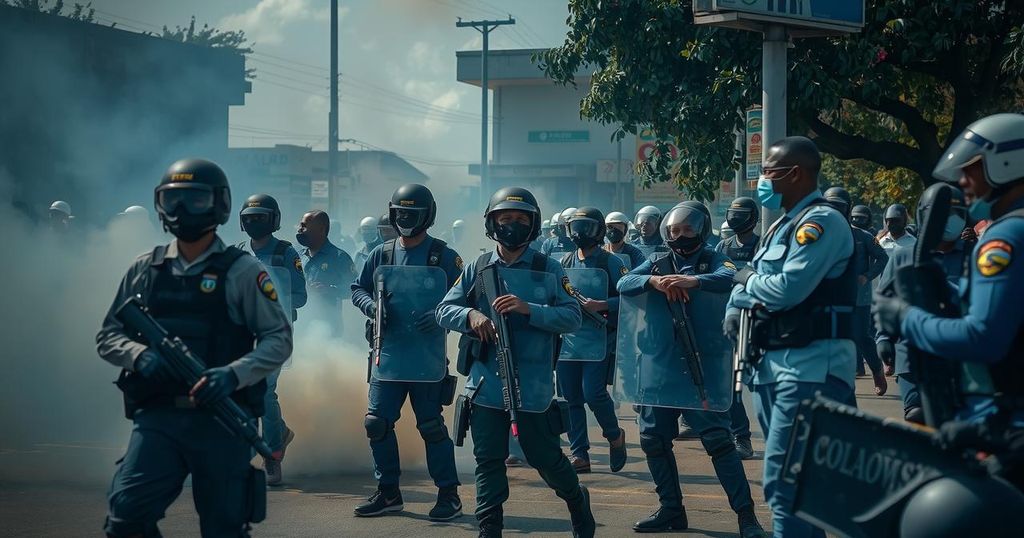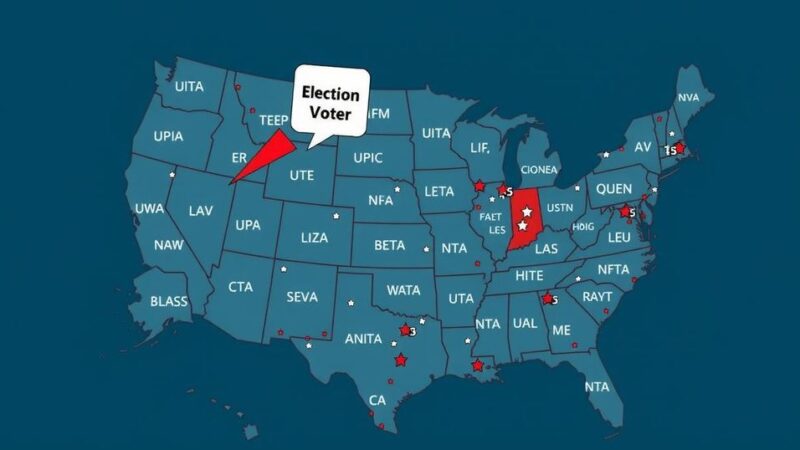Mozambique police have used tear gas against thousands of protesters in Maputo after allegations of electoral fraud in the October 9 elections. The unrest has resulted in numerous deaths and prompted increased police presence as well as considerations for military intervention. Opposition leader Venancio Mondlane claims a significant political transition is forthcoming amidst calls for electoral integrity and human rights adherence.
In Maputo, Mozambique, police have employed tear gas to disperse large crowds protesting the results of the recent electoral vote, held on October 9. Thousands of demonstrators gathered in the capital, accusing the ruling FRELIMO party of electoral misconduct, which Human Rights Watch claims has resulted in at least 18 fatalities due to heightened unrest. Daniel Chapo of FRELIMO secured 70.67% of the votes, while counter-candidates Venancio Mondlane and Ossufo Momade garnered 20.32% and 5.81%, respectively. The situation has escalated, leading authorities to increase their presence on the streets and consider military intervention to maintain order. Previously reported incidents indicate that a police officer lost his life during the protests over the weekend. In response, Defense Minister Cristavao Chume suggested possible military action may be necessary “to protect the interests of the state.” Amidst this turmoil, U.N. High Commissioner for Human Rights Volker Türk expressed serious concern regarding the violence, urging law enforcement to adhere to international human rights standards during protest management. In an interview amidst rising tensions, opposition figure Venancio Mondlane emphasized that Mozambique stands at a pivotal juncture in its history. He described the atmosphere as “revolutionary,” indicating significant political transformation may be imminent. Mondlane’s assertions regarding electoral fraud are supported by his party, Podemos. Furthermore, the unrest has prompted a suspension of port operations, impacting cross-border activities with South Africa. The Lebombo border crossing, initially closed, has now partially reopened, facilitating the return of stranded Mozambicans and South African trucks.
The political climate in Mozambique has recently been marked by unrest following the October 9 elections, in which the ruling FRELIMO party faced accusations of electoral fraud. The election results sparked widespread protests, leading to violence and a significant police response. Historical tension between FRELIMO and the opposition parties, including RENAMO and Podemos, has contributed to the current instability, as calls for electoral integrity grow louder amidst rising casualties from the ensuing clashes. International entities, such as the United Nations, are observing the situation closely, urging restraint and adherence to human rights norms.
The protests in Maputo represent a critical juncture in Mozambique’s political landscape, revealing deep-seated discontent with the electoral outcomes and fears of government repression. The response from security forces, coupled with opposition claims of fraud, underscores the potential for escalating violence if diplomatic or peaceful resolutions are not found. As both local and international observers watch closely, the need for dialogue and respect for human rights becomes increasingly urgent to avert further tragedy.
Original Source: www.dw.com






